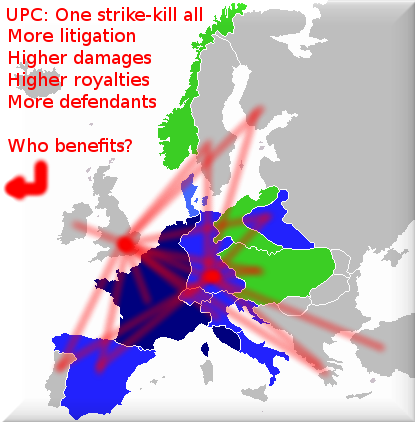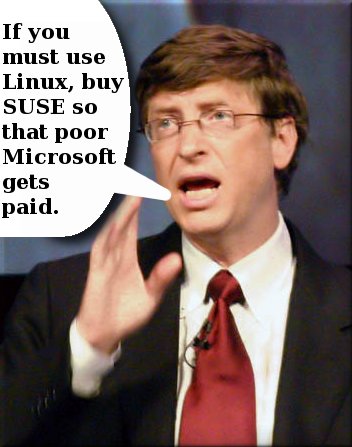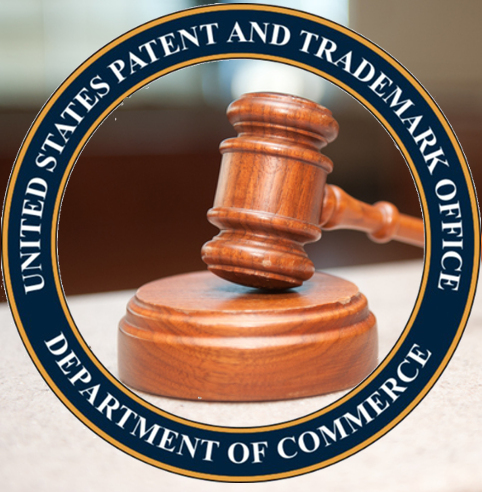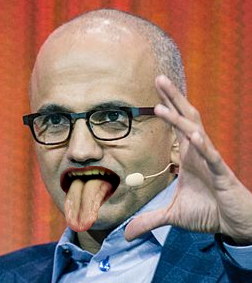01.03.16
Posted in Europe, Patents at 9:37 am by Dr. Roy Schestowitz
When push comes to shove and applicants are fed up…

Summary: Techrights has become aware of political action that is likely to impact the regime of Benoît Battistelli, with particular focus on how small applicants are being (mis)treated
THE management of Europe’s greatest source of shame as of late is accused of abusing not only EPO staff but also applicants (except large corporations, despite the hogwash), who are essentially the lifeline of the EPO.
“Correction is urgently needed for the EPO’s very survival.”It has come to our attention that action is being silently taken, as European SMEs find themselves squeezed and squashed by today’s EPO. We are actually receiving a lot ‘dirty laundry’ these days, not from EPO examiners but from EPO applicants, or supposed ‘clients’. Many Europeans are rightly upset. Even some European lawyers are very much upset at Benoît Battistelli’s regime. They too send us material. The view of the EPO inside Europe is rapidly becoming akin to that of FIFA and Battistelli (the Blatter equivalent in this case) very much deserves all this, as many of the recent scandals he can be personally held accountable for. We know where the commands come from (the top) and instructions to suppress dissent by all means possible have led to a cyclical Streisand Effect.
Today we present the first part of a multi-part series which shows how the ‘little guy’ (or a small plater/European SME) gets mistreated by the EPO.
“I have tried to involve my MEP,” told us a source. “He has written once to the EPO. He got a response, the usual that there is nothing wrong.”
Recall how Battistelli typically reacts to politicians who are critical of him.
With or without politicians, we are eager to put some important stories out there, demonstrating not just to the public but also to EPO examiners what kind of discriminatory system is run from Munich. This has got to stop. Correction is urgently needed for the EPO’s very survival. █
Permalink
 Send this to a friend
Send this to a friend
01.02.16
Posted in Europe, Patents at 8:44 pm by Dr. Roy Schestowitz
Original in English
Publicado en Patentes en America, Europe 10:12 am by Dr. Roy Schestowitz
Bienvenidos a Alemania, Trolls de Patentes

El impacto del Tribunal de Patentes Unitaria TPU
Sumario: Alexander Esslinger, abogado de patentes, hace absolutamente claro en su personal opinon que el Tribunal de la Patente Unitaria seria un sueño hecho realidad para los trolls de patentes si se logra implementar.
Imagine un systema de patentes europe, come la Oficina de patentes de los Estados Unidos. Imagine que la Oficina Europea de Patentes cabildeando activamente por un systema que favorece las patentes de software. Bueno no se lo imagine más. Ya esta sucediendo y haciendose realidad. Famosos trolls and tortuosos rufianes de patentes tales como Kyle Bass y Enrich Spangberg, a quienes mencionamos una semana atrás deben estar babeando acerca del Tribunal de Patentes Unitarias; el cual ya viene siendo promovido por la Oficina de Patentes Europeas en los Estados Unidos incluso ahora (con ayuda financiera por esta promoción). Los trolls son uno de los muchos resultados del Tribunal de Patentes Unitarias, otros son su expansión al software y otros dominios. Muchos respetables profesionales de patentes ya han explicado el porque y como. “Un nuevo patente de monetizacion”, lo llamo Alexander Esslinger hace dos dias [1 https://www.linkedin.com/pulse/bass-spangenberg-patent-validity-attack-new-model-soon-esslinger, 2 http://patentlygerman.com/2015/12/31/the-bass-spangenberg-patent-validity-attacks-a-new-patent-monetization-model-soon-to-be-expected-in-europe-under-the-upc/] “Muy pronto Europa estara bajo el Tribunal de Patentes Unitarias” (Esslinger is un abogado de patentes de Alemania y Europa en Betten & Resch).
“LOS TROLLS SON UNO DE LOS VARIOS PRODUCTOS DEL TRIBUNAL DE PATENTES UNITARIAS, OTROS SON SU EXPANSION AL SOFTWARE Y OTROS DOMINIOS”
Citando al análisis de Esslinger, que probablemente ve a los trolls como una oportunidad de negocios (para los abogados de patentes): “Las actividades de entidades no practicantes (para algunos conocidos como “trolls de patentes”) estan tratando de hacer dinero al adquirir y obligar a pagar (coercer) a terceros, es muy controversial y discutido en los Estados Unidos asi como en Europa. Haciendo frente al criticismo de que entidades no practicantes amenazarian compañias inocentes al obligarlos a pagar pretenciosas patentes invalidas. Al pricipios del 2015, el tristemente celebre gerente de fondos de cobertura Kylie Bass junto con el experto en propiedad intelectual Erich Spangenber idearon una nueve strategia de hacer dinero basado no en la obligacion de someterse a las patentes pero en desafiar la validez de esenciales patentes en contra de compañias en el area farmaceutica. Pusieron en accion una acertadamente llamada “Coalicion por medicinas baratas” y atacaron compañias de medicinas caras. La estrategie es buscar compañias cotizadas en la bolsa cuyo value es basado en el bajo numero de patentes que poseen y su valiez. Depues desafian esa patentes al introducir substitutos rapidos y baratos (comparado a un juicio en los Estados Unidos), revision de pares en el Juicio de Patentes y Junta de Apelación del Tribunal de Patentes de los Estados Unidos. El que ya se ha ganado una reputación de altas invalidaciones. Se aseguran que aparte de la reducción de precios en las medicinas en caso de su exito también los financiadores reciban un pago por sus inversiones. Bass y Spangenger rapidamente vendieron stock de las compañias atacadas. Eln elcaseo de ataques contra la validez de esas patentes de esas compañias cree incertidumber en los mercados financieros que trae como consecuencia la caida de precios y ganancias para sus inversores. Cuán exitosa fue esa estrategia en corte todavía esta para verse, ya que de los 30 casos iniciados (a Diciembre 18 de 2015) están pendientes, pero fueron ntoicas en la comunidad de propiedad intelectual de los Estados Unidos. Claramente la industria farmaceutica es la menos entusiasta.
Como el el caso de TPP y TTIP, tratamos con la automatica pase de poder y riqueza. “El Tibunal de Patentes Unitarias es un desastre en desarrollo[http://techrights.org/2015/12/31/upc-reality-checks/]. Ofrece demasiado a las corporaciones multinacionales y sus abogados de patentes (incluyendo aquellos oportunistas en Europa), mientrase que el publico no consigue nada, solo PRECIOS INFLADOS ARTIFICIALMENTE. Profesionales tecnicos sufren a no ser que trabajen pare esas multinacionales (el mito del “goteo” es falso ya que pocos se agarran las ganancias), lo que significa que las pequeñas y medianas empresas de Europa sufren mas que nadie. El lema de sus proponentes es metamosle la yuca! En los Estados Unidos F.. them all!
“EN EL CASO DE LA TPP Y LA TTIP SE TRATA DE UN AUTOMATICO PASE DE PODER Y RIQUEZA”
Estamos observando en camara lente como el Systema Europeo de Patentes es rapidamente moldeado a los intereses Estado Unidenses, donde la disparidad economica es asombrosa (más que en cualquier parte de Europa). Hay un articulo en Vice titulado [http://motherboard.vice.com/read/the-11-stupidest-patents-of-2015] “La 11 Patentes mas Estupidas de 2015″. Suficiente decir que es acerca de patentes otorgadas por la Oficina de Patentes de los Estados Unidos. Citando el primer parrafo: “Desde que la Oficina de Patentes de Los Estados Unidos otorgo su primera patente por un ingrediente llamado potash en 1790, ha visto su parte de terribles estupidas ideas. De vibradores bong powered, a asientos de avion con calmantes, los archivos de la USTPO sirven de testamento al temerario espiritu de innovacion estadounidense. Aunque eperariamos que la acumulacion de ideas terribles lleve a un espiritu juicioso al otorgar patentes, solo ha empeorado desde que el viejo George Washington firmo la primera patente hace 225 años. Tan malo se ha puesto que el Congreso ha propuesto un projecto para limitar estas estupidas ideas.
“Aquellos que no despierten a la manera como la Oficina Europea de Patentes dispara en el pie de Europa en este momento se daran cuenta muy tarde, cuando el Tribunal de Patentes Unitarias se establecida y todos bajo su juridiccion tengan la yuca (cassaba) hasta por el cuello” Aunqe las patentes analizadas por el congreso no son tan estupidas como usar fuerza centrifuga para sacar a un bebe del vientetre materno, son un problema creciente en los Estados Unidos conocido como “Trolling de Patentes”. Este es una criatura que acumula patentes para extorsionar otras por dinero al supuestamente ser infringidas. Como pueden ver muchas patentes obtenidas por estos trlls (Entidades no practicantes en jerga de abogados) son estupidas (ejemplo Amazon patente en fondo blanco de fotografia), sin embargo trolling por patentes es 67 por ciento de los juicios de patentes en los Estados Unidos”.
Hay un correlacion muy fuerte entre area de patente (calidad de patente) y trolling de patentes como hemos demostrado en casi cien articules. Aquellos que no ven como la Oficina Europe de Patentes dispara en el pie a Europa en este momento, lo vera solamente cuando sea muy tarde para ser abolido. Retirarse de ella antes que el publico vote acerca de ella todavia es posible. Los abogados europeos franaticamente la estan apurando incluso antes de que el publico se de cuenta de lo que realmente es. “Publico Europe agachense y cierren los ojos que la yuca no va a doler” es su lema. Tienen mucho que esconder y ganar de un publico ignorante, desidioso y desinteresado. █
Permalink
 Send this to a friend
Send this to a friend
Posted in America, Europe, Patents at 10:12 am by Dr. Roy Schestowitz
Willkommen in Deutschland, patent trolls

Summary: Alexander Esslinger, a patent lawyer, makes it abundantly clear that in his personal view the Unitary Patent Court would be a dream come true for patent trolls if it ever became a reality
IMAGINE a European patent system more like the USPTO. Imagine the EPO actively lobbying for a system that favours software patents. Well, imagine no more. It’s already happening and it's becoming a reality. Famous trolls and patent thugs such Kyle Bass and Erich Spangenberg whom we mentioned here a week ago must be salivating over the UPC, which the EPO is already promoting in the US, even right now (with financial assistance to this promotion). Trolls are one among several outcomes of the UPC, others being expansion of scope to software and other domains. Some respected patent professionals have already explained why and how. “A new patent monetization model,” Alexander Esslinger called it two days ago [1, 2], “Soon to be expected in Europe under the UPC” (Esslinger is a German and European Patent Attorney, partner at Betten & Resch).
“Trolls are one among several outcomes of the UPC, others being expansion of scope to software and other domains.”To quote Esslinger’s analysis, which probably view trolls as a business opportunity (for patent lawyers): “The activities of non-practicing entities (NPE´s; by some referred to as “patent trolls”) trying to make money by acquiring and enforcing patents against third parties are still very controversially discussed in the US as well as in Europe. Taking up criticism that NPE´s would threaten innocent operating companies with enforcement of allegedly invalid patents, in early 2015, well-known hedge-fund manager Kylie Bass together with IP expert Erich Spangenberg devised a new patent-monetization strategy based not on patent enforcement but on challenging the validity of essential patents of target companies in the pharmaceutical area. Putting into place an aptly named “Coalition for affordable drugs” (CFAD), they targeted high-priced patented drugs. The strategy is to look for publicly traded pharmaceutical companies the value of which is substantially dependent on a low number of patents which, based on a first analysis, have questionable validity. Then they challenge the validity of these patents by way of the newly introduced, allegedly fast and low-cost (compared to a full patent trial in the US) inter partes review (IPR) process at the Patent Trial and Appeal Board (PTAB) of the USPTO, which had quickly gained a reputation of high invalidation rates. To make sure that – besides the effect of reduced prices for the patented drugs in case of success – the fund investors receive a return on investment, Bass and Spangenberg short-sell stock of the targeted pharmaceutical companies. In case the attacks on the validity of the patent(s) of such company create considerable uncertainty in the financial markets, this results in falling stock prices and thus profits for the investors. How successful the strategy turns out to be in the courtroom cannot yet be judged, since the 30 initiated IPR proceedings (by 18 December 2015) all started only in 2015 and are still pending, but it certainly was big news in the US IP monetization community. The pharmaceutical industry understandably is less enthusiastic.”
“Like in the case of TPP and TTIP, herein we deal with a systematic passage of power and wealth.”The UPC is a disaster in the making. It offers a lot to multinational corporations and their patent lawyers (including those opportunists inside Europe), whereas the public gets nothing out of it, except artificially inflated prices. Technical professionals suffer unless they happen to be working for these few multinational corporations (even then the ‘trickle-down’ effect is just a myth, as very few people hoard all the profits), which means SMEs from Europe can suffer the most.
Like in the case of TPP and TTIP, herein we deal with a systematic passage of power and wealth. We are watching — even if in slow motion — the EU patent system gradually being warped into something reminiscent of the US system, where economic disparity is gross (more so than in most of Europe). There’s a new article at Vice right now and it is titled “The 11 Stupidest Patents of 2015″. Suffice to say, it is about patents granted by the USPTO. To quote the opening paragraphs: “Ever since the US Patent and Trademark Office issued its first patent for a fertilizer ingredient called potash in 1790, it’s seen its fair share of dumb ideas. From bong-powered vibrators to airplane seats filled with sedatives, the archives of the USPTO serve as a testament to the reckless spirit of American innovation. Although one would expect the steady accumulation of terrible ideas to lead to more judicious patent granting at the USPTO, things have only gotten worse since ‘ol George Washington signed off on the first patent 225 years ago—so bad, in fact, that Congress has found it necessary to propose a number of bills in recent years to stem the rising tide of dumb ideas.
“Those who fail to see how the EPO’s management shoots Europe in the foot right at this moment in time might only see if when it’s too late because unjust stuff like UPC went way too far to be revoked.”“Although the patents being targeted by Congress aren’t quite as dumb as using centrifugal force to launch a newborn from its mother’s womb, they are a part of a growing systemic problem in the US known as patent trolling. The patent troll is a pretty scummy creature whose main m.o. is to stockpile patents, not for the sake of actually making anything with them, but solely for the purpose of extorting money from other companies for patent infringements. As you can probably imagine, most of the patents held by patent trolls (known as ‘non-practicing entities’ in legal jargon) are pretty dumb or trivial (take Amazon’s patent on white-background photography, for instance), but nevertheless patent trolling now accounts for 67 percent of all patent lawsuits filed in the US.”
There is a very strong correlation between patent scope (or patent quality) and patent trolling, as we have shown here in nearly 100 past articles. Those who fail to see how the EPO’s management shoots Europe in the foot right at this moment in time might only see if when it’s too late because unjust stuff like UPC went way too far to be revoked. Withdrawal from something that the public never even voted on is still feasible. European lawyers try to frantically rush it through and make it a reality before the public even knows what it is; they have plenty to hide an plenty to gain from an uniformed (unsuspecting, passive, disinterested) public. █
Permalink
 Send this to a friend
Send this to a friend
01.01.16
Posted in Microsoft, Novell, Patents at 9:22 pm by Dr. Roy Schestowitz
The patent ploy of Microsoft and Novell isn’t quite bearing fruit

Summary: The Microsoft-led CPTN now has Novell’s software patents, so the Microsoft-Novell-SUSE deal has officially come to an end, and there’s no sign of it ever continuing, with or without patents
WHEN Microsoft signed a 5-year deal with SUSE we called for/asked our readers to boycott SUSE. This deal has just officially come to an end, as we noted yesterday. Now, to be frank, there is not much to be said about it as two articles by Sam Varghese explored this subject a couple of months ago [1, 2] and this deal does not appear to have much to do with patents, so we don’t need to worry too much.
“So much for relying on Microsoft as a ‘partner’…”
–The deal was signed in 2011. An article from around that time took note of CPTN, saying: “In fact, it is so much money that it’s fair to argue that Novell would have imploded without the Microsoft cash injections and sold for a lot less money than the $2.2bn that Attachmate paid to get control of it. (The net cost to Attachmate was less than half of that, however, thanks to the cash Novell had on hand and another $450m that a consortium led by Microsoft paid for 880 of Novell’s patents.)”
What’s interesting here is that SUSE is no longer so ‘special’ a child in Microsoft’s eyes. So much for relying on Microsoft as a ‘partner’… █
Permalink
 Send this to a friend
Send this to a friend
Posted in Europe, Marketing, Patents at 12:46 pm by Dr. Roy Schestowitz
Summary: How the controversial European Patent Office (EPO) is working behind the scenes in order to police its portrayal and also shape news about the EPO
ONE aspect of the EPO which we never explored in depth is the so-called ‘communications’ department (a more recent euphemism for propaganda). Don’t forget the circumstances under which Vincent Bénard left (there were other such stories — some even more shocking — at that time).
Based on our reliable sources, who had experience with the EPO’s media- or trend-setting team, the PR team of the Office has the “sweet talkers”. These are the people who will pretend to be your friends or “buddies”, as journalists who were subjected to similar treatment from Microsoft PR agencies called it. This is what some of these people are professionally trained to do. Moreover, we managed to learn that they also have the people who are actually pressuring (even over the phone) not to publish certain things. Well, pressuring publications is not PR, it’s almost a form of bullying. We learned that editors and publishers are given marching orders for writers (commissioning work). If there was a propaganda minister at Munich, who would it be?
“Moreover, we managed to learn that they also have the people who are actually pressuring (even over the phone) not to publish certain things.”We learned that the EPO’s PR team has, at times, attempted to change existing (to be published) stories by asking publishers to make them balanced rather than “biased”, meaning not favourable to the EPO’s image. Rainer (“Press spokesperson” is his job title) is allegedly doing a lot of the communications, sometimes Jeremy also (watch how he and IAM ‘magazine’ worked hand in glove, so to speak). We can’t help but wonder what made the BBC spike a negative story about the EPO. Jana Mittermaier is not directly involved all that much, at least not with media organisations. She had studied in the UK, where Jeremy also came from.
Remember that the EPO is an international body, not a European body, so wasting money on improving its image isn’t even designed/intended to serve European interests. The “E” in EPO is very misleading. Recall the greenwashing PR campaign (expensive EPO-commissioned ‘study’), coinciding with climate talks in Paris. This one example and other patterns of PR as of late serve to show just how desperate the EPO is for positive messages (it’s willing to pay to ‘manufacture’ these).
“The EPO is quite a greased-up propaganda machine.”One other thing we learned is that — much as we predicted all along — it is now confirmed that the EPO’s PR team sends (in mass or bulk) press releases to a lot of sites, attempting to seed their so-called ‘story’ du jour (sometimes commissioned ‘study’). This method is rather effective at getting one's message out there if one is not shy to stoop down to this level. A lot of PR people lost this sense of shame as do this habitually (“everyone’s doing it!”), sending lots of junk even to complete strangers whom they never ever spoke to.
Perhaps the most shocking thing that we learned is that the editors in some publications put pressure on their writers to write articles or something similar (more like “announcements”) based on press releases sent by the EPO. This is based on what we learned privately. It’s not just hearsay.
The EPO is quite a greased-up propaganda machine. Techrights is up against something that calls itself “patent office” but has a massive PR operation (and fancy events for so-called ‘inventors’ of the year); it’s something which calls itself “European” but is run by and for globalists. A lot of the PR too (operating at a budget of nearly $100,000 per month!) has been outsourced to the United States. █
Permalink
 Send this to a friend
Send this to a friend
Posted in Europe, Patents at 7:32 am by Dr. Roy Schestowitz
Lipstick on a warthog

Summary: Only hours after the new year kicks in the EPO kick-starts what seems like a new PR (or ‘damage control’) strategy which gives the illusion of patent neutrality
ALMOST nobody writes anything on the morning of January 1st, let alone goes to work. But the EPO, desperate for a fresh start, now responds to the scandal involving prioritisation of large companies (see context) by announcing change of policy when nobody is even supposed to be at the Office. Not even journalists are around. What seems like ‘damage control’ was even restoring activity or bringing back to life the Twitter account of the EPO (for the first time in a long while). It’s not a scheduled (automated) publication. Someone appears to be working just on that.
It’s not hard to see who the EPO really works for. Just watch all the lobbying for the UPC, which is constructed to benefit patent lawyers and their super-rich clients (usually not even European). Here we see a very large firm as such, having just posted or merely reposted in another lawyers’ publication its tips for getting past the ‘pesky’ examiners/judges (those who can reject patent applications).
“It’s not hard to see who the EPO really works for. Just watch all the lobbying for the UPC, which is constructed to benefit patent lawyers and their super-rich clients (usually not even European).”“2015 was a busy year for the EPO Boards of Appeal,” say the patent lawyers, “with many decisions across various technical areas delivered. These included four G decisions from the Enlarged Board. Here we have provided a non-exhaustive overview of many of the decisions, including G decisions and T decisions with a distribution code of C (to board chairmen) or higher (to board member or even published in the Official Journal).”
The EFF, in the mean time, posts a review about patent trolls in 2015 (increasingly an issue in Europe as of last year, only to get worse with UPC).
EPO, we've got you watched this year. █
Permalink
 Send this to a friend
Send this to a friend
12.31.15
Posted in America, Courtroom, Europe, Patents at 12:10 pm by Dr. Roy Schestowitz
State of litigation

Summary: New evidence, based on two stories where large victims of patent trolls fought back (rather than cough out settlement money), show that software patents increasingly get tossed out by judges, even in trolls-friendly courts
WHEN a software patent that’s owned by a troll (the classic scenario) is reported on by the corporate media it’s rather easy to spot based on “LLC” in the title, or sometimes just the word “Texas”. The targets of litigation by these trolls needn’t be just US companies, especially if (or when) the UPC becomes a reality.
A German company (maybe the most famous German company, Mercedes-Benz) has become a victim of some US patent troll called “Vehicle Intelligence”. There is nothing about it in Wikipedia and their (his?) Web site is just a handful of pages with all the hallmarks of a patent troll, where “products” are just “licensing” (i.e. patent tax). Reading this article about the troll, we find that “the inventor, Kevin Roe, is also the patent attorney” (again, classic troll). To quote the opening paragraph from Patently-O: “Vehicle Intelligence and Safety LLC is the owner of United States Patent Number 7,394,392 vehicle safety improvements. In particular, the patent claims systems and methods for testing vehicle operators and then taking control of the vehicle if the operator is deemed impaired. Senior Judge Hart of the Northern District of Illinois ruled on the pleadings (12(c)) that the asserted claims were invalid as being drawn to patent-ineligible subject matter under Section 101 of the Patent Act. On appeal, the Federal Circuit here affirms – holding that “the disputed claims cover only abstract ideas coupled with routine data-gathering steps and conventional computer activity.” An early potential strike against the patent that the inventor, Kevin Roe, is also the patent attorney who prosecuted the case and the litigator who filed the appellate briefs.”
“Are we seeing software patents on the retreat in the home of software patents? And if so, why on Earth is the EPO‘s management ushering in more of them?”Got that? “Section 101 of the Patent Act.” This is a relief as it contributes to the belief or the correct perception that software patents are on the run in the Unites States.
There is another bit of good news, akin to the above. Remember that Patent TrollTracker had worked for Cisco before he got himself and/or his employer sued by a troll for defamation or whatever? Well, Cisco, based on this new report, has just beaten a patent troll that had struck in Texas, which attracted a lot of attention this month [1, 2, 3, 4], 5]. “In 2013,” wrote the trolls expert, “a two-judge majority on the panel found that Cisco should have been allowed to tell the jury they had a “good faith belief” that the patent was invalid. The jury instructions were thus improper, and the appeals judges kicked the case back down to the trial court in the Eastern District of Texas.”
Well, the $64,000,000 verdict has just been overturned.
Are we seeing software patents on the retreat in the home of software patents? And if so, why on Earth is the EPO‘s management ushering in more of them? Beggars belief! █
Permalink
 Send this to a friend
Send this to a friend
Posted in Corel, Courtroom, EFF, GNU/Linux, Microsoft, Novell, Patents at 11:29 am by Dr. Roy Schestowitz
The ‘new’ Microsoft…

Satya Ballmer: different face, same strategy/policy
Summary: Microsoft continues its vicious patent war on anything resembling competition (however small), even the competition against which Microsoft previously committed competition abuses/crimes (subject of court cases) in order to attain total monopoly
MICROSOFT, which is connected to many patent trolls (including Intellectual Ventures, the world’s biggest), is still busy suing companies. Microsoft has a long history of patent aggression, including patent litigation against Linux (not just threats thereof). As longtime readers of this site may know, this and only this was the raison d’être of this Web site.
“…since winning a case for infringement of design patents can lead to a damage analysis based on “lost profits,” which can theoretically lead to a patent owner getting all of a defendant’s profits.”
–Joe MullinAs we noted the other day, referring to the original from the EFF, Microsoft is now attacking a company that once dominated word processing. Microsoft allegedly engaged in competition crimes against this company, leading to decades of expensive litigation. This company also pioneered some important GNU/Linux efforts until Microsoft shut these down with a mysterious deal (which we wrote about on several occasions around 2007). Well, Microsoft is now trying to drive this company into bankruptcy, using patents.
What’s the name of this company? Corel. We have a whole category about Corel (with 51 articles, as well as leaked court documents). History is important here and it’s imperative that people properly study Corel to truly grasp how severe this situation really is.
Microsoft is now attacking Corel with what the EFF calls “Stupid Patent of the Month”. As noted by one good journalist (Joe Mullin), “it’s serious ammo, since winning a case for infringement of design patents can lead to a damage analysis based on “lost profits,” which can theoretically lead to a patent owner getting all of a defendant’s profits.”
“Remember the company called Novell? Yes, that company that pretty much vanished half a decade ago and whose patent/special deal with Microsoft (SUSE) will expire tomorrow (there are no signs of renewal or continuation).”In other words, expect layoffs, liquidation, bankruptcy, etc. Legal fees aren’t low, either. Remember the company called Novell? Yes, that company that pretty much vanished half a decade ago and whose patent/special deal with Microsoft (SUSE) will expire tomorrow (there are no signs of renewal or continuation). Other than the name being similar, Novell and Corel have a lot in common because both competed against Microsoft until signing some infamous deals with Microsoft, leading to their demise, as well as the demise of their ongoing court cases against Microsoft (for competition abuses/crimes). When Novell imploded Microsoft grabbed its patents. Sweet deal for Microsoft. Novell is virtually gone (devoured by another company) and its patents are in CPTN, which is a ‘conglomerate’ pool of Linux and Android foes such as Oracle and Apple.
“Microsoft is now using patents primarily against Android, which the company is at war against (don’t believe the pretenses and the “loves Linux” baloney).”We quite liked how Glyn Moody framed the situation in his article “If Microsoft Wins Its ‘Stupid Patent Of The Month’ Lawsuit, Expect A Plague Of Trolls To Move Into Design Patents”.
As if Microsoft itself is not somewhat of a massive troll itself (we wrote a lot about this before). Just look what the company has been doing with patents this past decade. “The recent Techdirt article about Microsoft’s design patent on a slider,” Moody wrote, “understandably focused on the absurdity of companies being forced to hand over all of the profits that derive from a product if it is found to have infringed on someone else’s design patent even in just a tiny portion of that product. But there’s another angle worth mentioning here that picks up on something Techdirt has written about several times before: the rise and threat of patent thickets. Back in 2012, it was estimated that 250,000 active patents impacted smartphones. That makes it impossible to build devices without licensing large numbers of patents, and even then, it’s likely that claims of infringement will still be brought.”
Microsoft is now using patents primarily against Android, which the company is at war against (don’t believe the pretenses and the "loves Linux" baloney).
“The EPO’s lawyers who currently deal with my case were also recently seen working from the same side as Microsoft on the patent front, based on Reuters.”Here is another new article about Microsoft’s “Stupid Patent of the Month”. “The design patent,” says Softpedia, “numbered D554,140, basically states that Microsoft is the owner of the slider you can see in the photo attached to the article. This is the very same slider that the company uses in its Office productivity suite to allow users to zoom in or out of documents, but it has also been implemented in a wide variety of Microsoft and non-Microsoft products.”
But when patent examiners are pressured to issue patents in bulk and/or do a rushed job (as in the EPO for example, with Microsoft being on the high-priority list), no wonder such nonsense gets granted, leaving European courts to sort out the mess at a huge expense to the defendants. It is worth noting again that only articles of mine which mentioned Microsoft were even the target of threatening legal letters from the EPO’s lawyers, which gives room for speculation. The EPO’s lawyers who currently deal with my case were also recently seen working from the same side as Microsoft on the patent front, based on Reuters. █
Permalink
 Send this to a friend
Send this to a friend
« Previous Page — « Previous entries « Previous Page · Next Page » Next entries » — Next Page »























 Content is available under CC-BY-SA
Content is available under CC-BY-SA